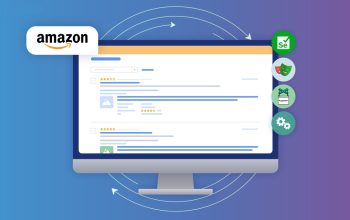Blockchain technology enables decentralized, secure, and fast transactions. It’s also impossible to forge or delete data because it’s stored in blocks that are linked together and timestamped.
These benefits are making blockchain an important technology for many industries. It can help reduce banking transfer fees, monitor supply chains, and track property ownership.
Financial Services
The financial services industry has a wide range of challenges that blockchain technology can help resolve, including ensuring data integrity and security, improving customer experience and regulatory compliance. This technology also has the potential to disrupt many existing business processes.
Using blockchain, banks and other financial institutions can process transactions with far more speed than today. For instance, international money transfers could be transferred in seconds and without any fees. This would reduce transaction costs and make banking more accessible to customers around the globe.
Blockchain also has the potential to improve the security of financial services, as it uses cryptography to record and verify transactions. This can help prevent hackers from stealing information and making counterfeit payments.
Another way in which blockchain can improve the financial services industry is through smart contracts. These contracts can automatically execute when specific conditions are met. This allows for more efficient, transparent and secure contractual terms.
Smart contracts can also allow for automated settlement of complex financial asset transactions. This can dramatically reduce back-end costs and labor hours for financial services companies.
This is especially important for banks and other financial services companies, as they have to deal with a large volume of transactions each day. Having these transactions settle immediately can remove a substantial part of the risk that a counter party may not be able to meet its obligations, which can be expensive for banks.
The global financial services industry is increasingly moving towards the adoption of Blockchain, which has the potential to improve customer experiences and regulatory compliance. This is especially the case with KYC (know your customer) requirements, where blockchain can streamline the process and provide a digital single source of identity for customers to update their information.
As a result, this will save the bank time and cost while maintaining the privacy of customer data that is required by law.
In addition to this, financial services industries can benefit from blockchain through increased transparency and reduced risk of fraud. This can help them avoid costly mistakes that can be caused by human error. Furthermore, it can improve the efficiency of financial services and help them grow their market share.
Healthcare
Blockchain can be used to improve many aspects of healthcare, from preventing fraud to improving supply chain management. These applications are not only secure but also cost-effective and help to save more lives.
The most fundamental application of blockchain technology is to ensure that the integrity of patient data is protected. The decentralized nature of the system means that patients, doctors and health providers can share their information securely. This is crucial in the current climate of data-insecurity.
Another important application of blockchain is to help prevent the emergence of counterfeit drugs and other fraudulent products. In fact, the World Health Organization estimates that one in 10 medicines and medical supplies in developing countries are falsified or tampered with. These fake and unsafe products are a serious threat to the health of consumers.
There are several companies that are implementing the use of blockchain in healthcare. Some are using it for tracking and monitoring supply chains to ensure that all ingredients in medicines are tracked from production through to distribution. Others are utilizing it for sharing health data, such as Open Health Platform and Embleema.
Blockchain has the potential to create a truly global and trusted network of health records. The emergence of this kind of a system would have a significant impact on many areas of healthcare, including the development of personalised medicine.
It could also improve healthcare interoperability and enable smart contracts. This can improve the efficiency of hospitals and other practices, making it easier for patients to switch doctors without having to fill out numerous forms.
Finally, it can help to reduce the costs of healthcare and make it more accessible for everyone. For instance, it is estimated that in the United States, medical expenses account for 20% of GDP.
For this reason, it is crucial for the industry to embrace new technologies that can lower these costs and improve healthcare. This is why blockchain has become such a hot topic.
The benefits of a blockchain-based system include the ability to keep track of every ingredient in a medicine or drug, as well as the safety and effectiveness of its use. Moreover, the system can be easily updated by any provider in real-time, reducing errors and ensuring that prescriptions are matched to a patient’s needs. This can save the healthcare sector up to $100-$150 billion in annual losses due to fraud and counterfeit products.
Retail
Blockchain is a distributed ledger technology that allows participants in a network to maintain a copy of an immutable database of transactions. In the retail industry, this means that it can help ensure a product’s authenticity, track its origins and control its supply chain.
It can also be used to provide customers with secure, transparent transactions and eliminate errors in logistics. It can also reduce the costs of managing loyalty programs and simplify customer data management.
In addition, it can help companies avoid counterfeit goods by verifying the source of a product’s ingredients and manufacturing dates. This can help eradicate the use of poor quality ingredients and child labor, among other problems.
The retail sector is also expected to benefit from the use of smart contracts, which can help reduce costs by automating the implementation of contract terms and ensuring that suppliers pay for goods when they are delivered on time. In addition, it can help retailers track inventory more efficiently and give them better insight into their supply chain.
Moreover, the use of blockchain can help improve customer service by providing a record-time service and traceability. In the long run, this can reduce the risk of counterfeiting and help customers feel safer about their purchases.
In fact, a number of companies are using blockchain to provide consumers with these types of services. These include OpenSC, a distributed ledger technology provider that partnered with Nestle Group in July 2019, and IBM, which is working on a food trust blockchain solution with Walmart Inc.
While these are exciting opportunities for the retail industry, there are also some potential risks. For example, virtual currencies like bitcoin can be attractive to criminals because they are self-controlled and not subject to law enforcement controls. This is a problem for retailers who are trying to protect their brand by working with these currencies.
In the end, it is up to retailers to decide whether they are going to embrace these technologies or not. Ultimately, the decision should be made based on what is best for their business and customers. However, if retailers choose to embrace the technologies, they will need to understand how they can use them in the most effective way.
Supply Chain
The supply chain is a complex system that connects goods from manufacturers to stores and consumers. It is a network of processes that include everything from sourcing to packaging, delivering and payment. Blockchain can help the supply chain become more efficient and transparent.
The technology can also improve traceability and reduce the risk of counterfeit and gray market products. It can also help participants record price, date, location, quality, certification, and other important information. This information can be used to improve a company’s position as a responsible manufacturer.
In addition, it can help increase the efficiencies of logistics and transportation networks. The technology is already being used by major transport companies to enhance transparency in their operations and address customer disputes.
It can also be used to track food products and other perishable items throughout the supply chain. It can automatically update data transaction records when a change is made, helping to ensure that product is delivered to its destination in good condition.
This can reduce the risk of shipments being damaged and stolen. It can also be used to help customers understand the provenance of their products, which will make them more trusting of the brands they buy from.
Blockchain can also be used to create a permanent history of products, from manufacture to sale. This could dramatically reduce time delays and added costs.
Moreover, it can also help eliminate the need for intermediaries in many processes. This can save time and money, while making the processes more secure.
One of the biggest restraining factors for adoption of blockchain is regulations, which can be difficult to enforce and can lead to a significant delay in its implementation. The industry is also struggling to find a standard for the technology.
Another issue is the need for a high-volume of transactions and processing power to validate blocks and store ledgers on a blockchain. This can be a significant cost that will need to be considered before a project is started.
The use of blockchain can be beneficial for the supply chain, but it is important to weigh the potential benefits against the costs. This will help determine if the project is worth investing in.




